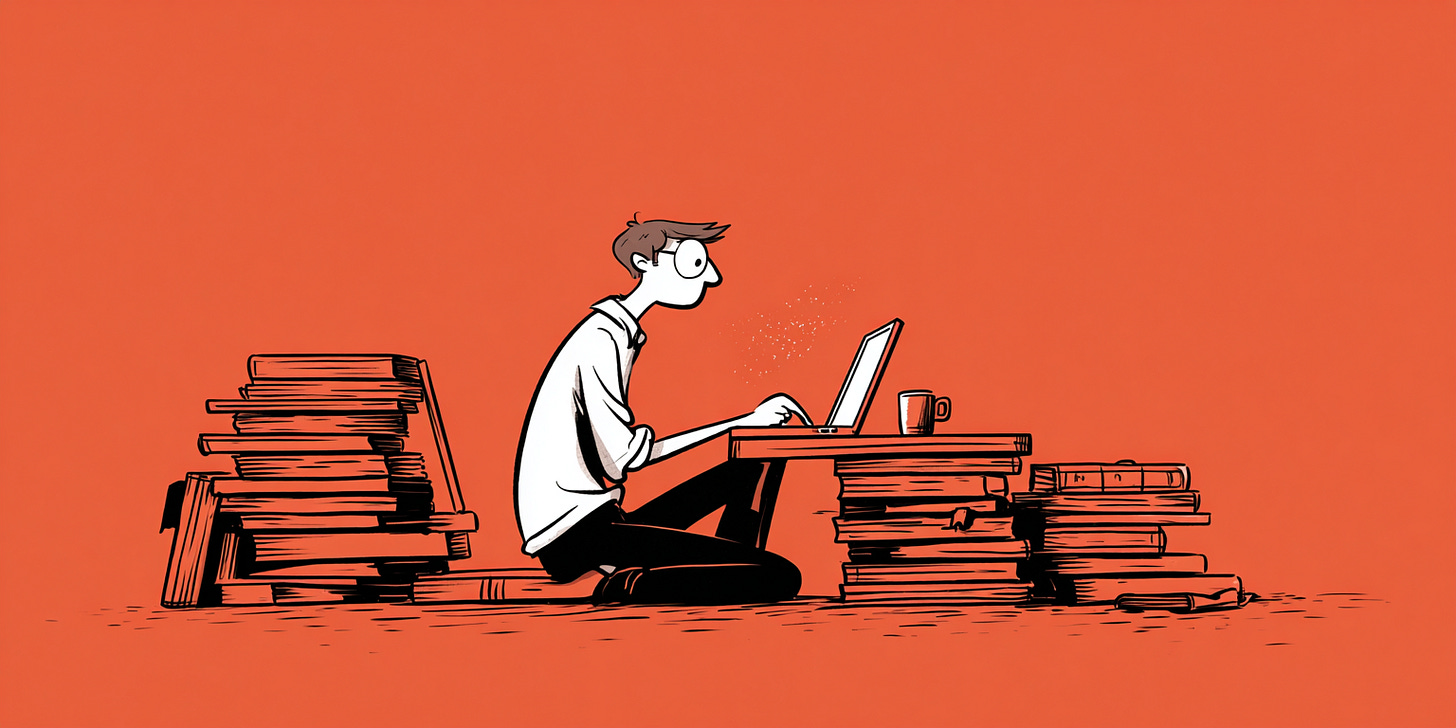How to want things without needing them, so you get more of what you want
Before we jump in…
Learning from great minds doesn’t need to take forever. Shortform helps with that.
I love finding genuinely useful habits that help me learn each day.
Shortform reduces my learning time. It’s not just book summaries, but a shortcut to effective learning. With chapter-by-chapter guides, and interactive exercises, it helps me quickly understand and apply the best ideas from any book.
If you want access to thousands of book guides for the price of a book a month, join Shortform today.
Untethered Mind readers get a free trial of unlimited access and an $50 discount on the annual memberships when you click here: shortform.com/untetheredmind
Enjoy!
Back to the article…
—
I once spent five months building what I thought would be my breakthrough course.
I convinced myself this was it. This would be the product that would finally set me up financially and prove I had things to say people really paid attention to.
When launch day arrived, I sat by my computer and watched.
I refreshed the page about 174 times.
Only six people bought.
I spent that next week sulking at home in my Garfield shorts, imagining new ways to cause damage to my living room.
Once the anger subsided, I found a glimmer of wisdom.
I saw that my desperation to make something work had actually gotten in the way of my success.
I'd grinded.
I'd hustled.
I'd pushed and shoved.
But I never really looked deeply into what I was doing.
That failure taught me about the delicate balance between caring deeply about your work and holding it lightly enough to survive when things don't go as planned.
The false choice that can keep us stuck.
Most of us believe we face a stark and scary choice:
Either we care so much about stuff that we become stressed, anxious, and brittle when things don't work out…
Or we stop caring altogether and lose the drive that makes life meaningful.
We 'give no f*cks' and then wonder why little is happening for us in our lives.
This binary thinking is the trap.
We assume passionate pursuit requires emotional dependency on outcomes, turning us into little needy squirrels.
But there's a third way, what I call: enthusiastic detachment.
Care deeply about the work, but don't hang on to any one specific result.
The key distinction.
Wanting comes from abundance, which is energising and creative.
Needing comes from scarcity, which is desperate and constraining.
My failed course needed to validate my worth and solve my financial problems. That neediness infected everything, including my pricing, copy, and marketing approach.
The phrase that changed everything:
'Want it, but don't need this particular version or outcome to succeed.'
That's enthusiastic detachment. It applies to courses, relationships, and anything else you want to succeed.
Why this works.
When you need something to work out, you broadcast desperation.
This shows up in how you present yourself and make decisions. You become tight, overthink everything, and choose from fear rather than clarity, which also reduces how effective you become in the process.
But at the same time, you don't want to stop working towards your vision for what you want, either.
A year later, I created another course with more conscious enthusiastic detachment.
Instead of perfecting something in isolation for months, I made a smaller version in two weeks and tested it with beta users.
I wasn't over-emphasising the importance of this particular course variant in my mind as I had done. This instilled a more flexible approach.
Because I wasn't attached to it being perfect, I could listen to feedback without defensiveness. I could pivot without feeling like I was admitting failure. I could experiment without my ego getting in the way.
The beta feedback revealed exactly what people actually wanted, not what I assumed they needed.
The result was a significantly improved course and a successful launch, selling at a 9x rate.
When I'm not desperate for any particular outcome, I make wiser decisions. I test instead of assuming and rushing. I adapt instead of blindly pushing.
The ultimate paradox is that the less you need something to work out, the more likely you are to get what you want.
And this isn't because you care less, but because you're operating from genuine flexibility rather than fear.
Remember, get out there and get what you want.
But don't rely on any one outcome being a success.
It will relieve the pressure, make you come across as less needy, more attractive and improve your process.
Oh, and if you’d like to take your mastery of abundance thinking to the next level, you might like my Untethered Mind course.
It guides you through a series of insights about the mind that will greatly increase your ability to think confidently and abundantly in a matter of hours.
How?
Because the root of this abundance thinking is the ability to nurture a calm and subsequently optimistic mind. That’s what this course helps with.
Learn more here and get access today.
And join us as a paying subscriber here for access to more bonuses and to support my writing:


